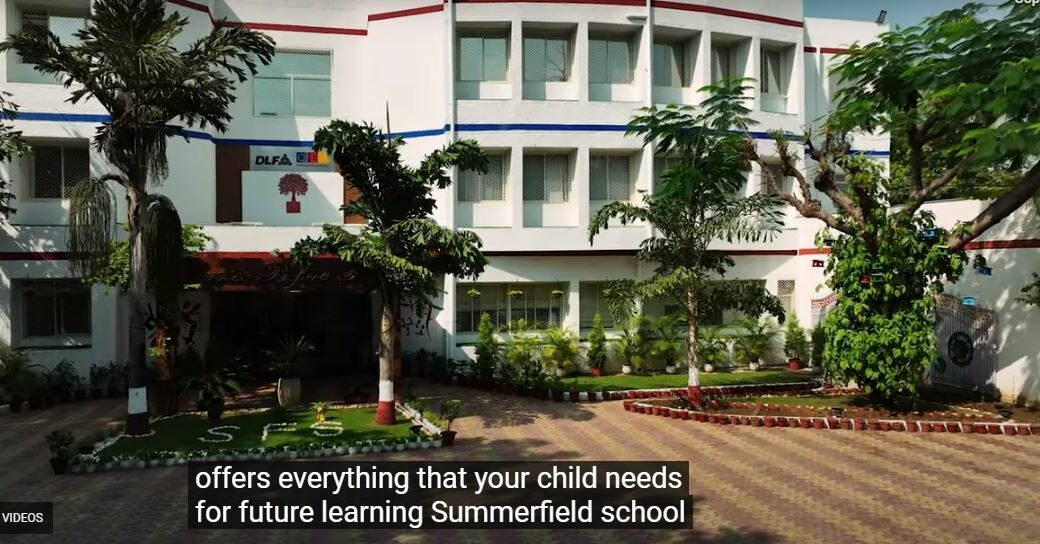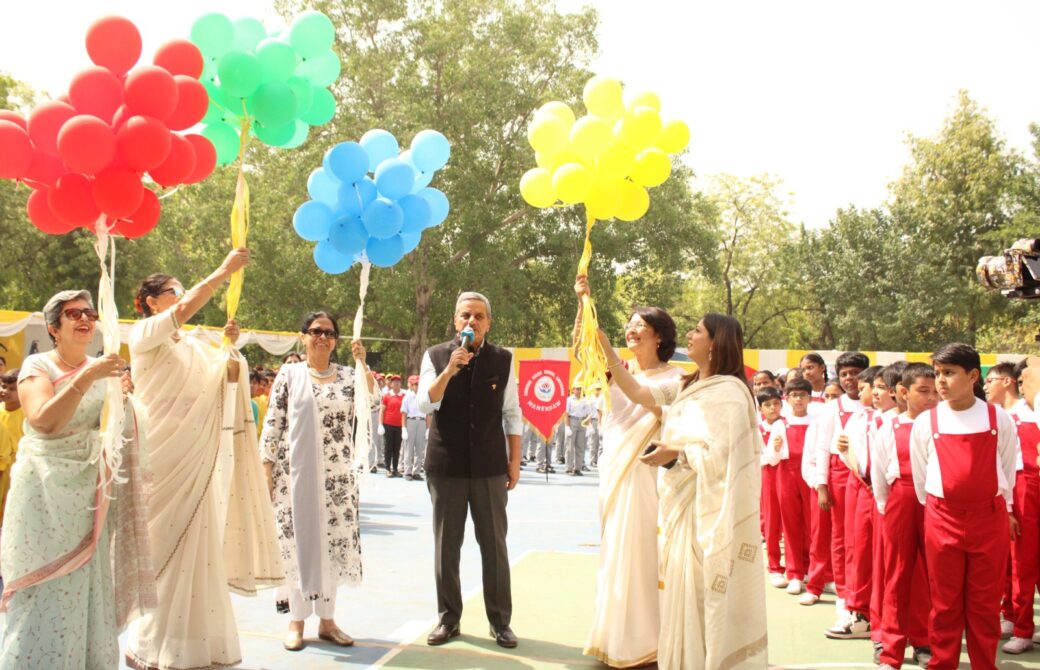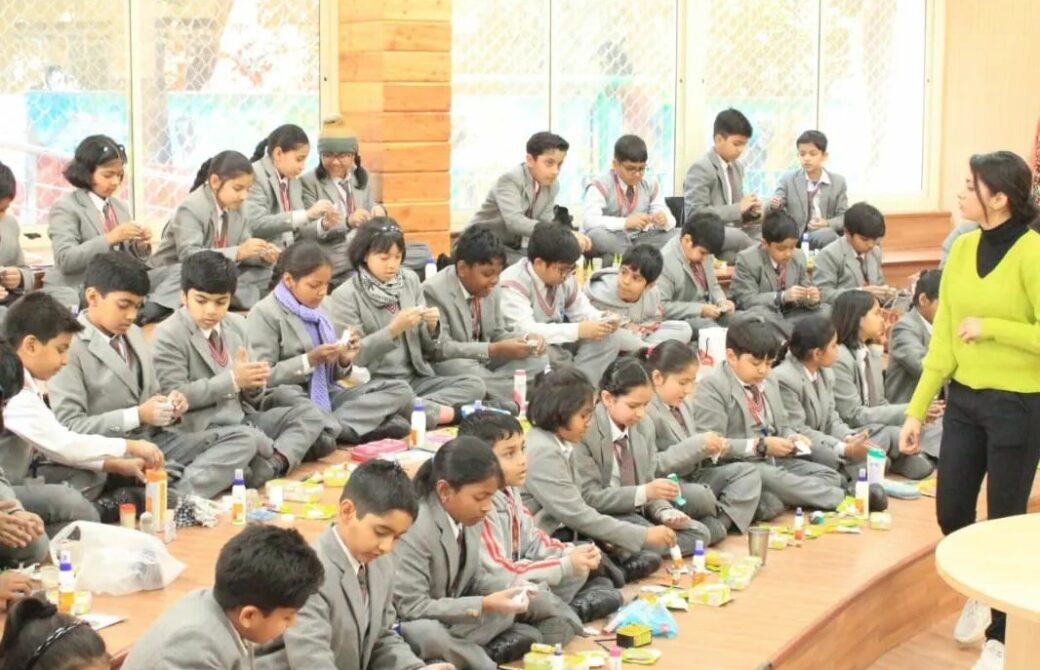Introduction:
In today’s education landscape, students are not just focused on achieving academic excellence but also on preparing for competitive exam such as JEE, NEET, UPSC, and Olympiads. At Summer Fields School Gurugram, the Top 5 CBSE Schools in Gurgaon where the Central Board of Secondary Education (CBSE) curriculum is designed with this in mind, ensuring that learners develop conceptual clarity, analytical ability, and problem-solving skills. This alignment makes CBSE school highly preferred among parents who want their children to excel both in school and in national-level assessments.
This article explores how the CBSE framework provides a strong foundation for competitive exam preparation, the teaching methods that enhance performance, and how a well-structured learning ecosystem ensures that students develop both academic and cognitive strength for future success.
About Us:
At Summer Fields School, our CBSE-based curriculum is purposefully designed to equip students for both board exams and national competitive exams. From middle to senior secondary, our academic framework combines a strong foundation in Science, Maths, Commerce & Humanities with specialized coaching, mock tests, Olympiad prep, and problem-solving workshops. Teachers integrate conceptual understanding with application through our tech-enabled classrooms and inquiry-based learning. Alongside this, our extracurricular offerings—debate teams, quiz clubs, science clubs, and mentorship sessions—help sharpen critical thinking, speed, and confidence. Regular assessments, personalized feedback, and remedial support ensure no student is left behind. Supported by modern labs, library, and sports & wellness programmes, learners are well prepared not just to compete, but to excel with integrity, resilience, and purpose.
1. The Vision and Structure of the CBSE Curriculum
The CBSE curriculum is more than a series of subjects—it is a structured approach to holistic development. The National Education Policy (NEP 2020) further strengthened its framework by promoting critical thinking, interdisciplinary learning, and conceptual understanding over rote memorization.
Key elements of the CBSE structure include:
- Scientific and logical progression: The curriculum builds from fundamentals to advanced concepts, helping students create strong subject linkages.
- Focus on applied learning: Subjects like Science and Mathematics encourage experimentation, reasoning, and practical understanding.
- Assessment for learning: Instead of focusing purely on grades, CBSE emphasizes formative assessments, giving feedback that helps students improve continuously.
This makes students better prepared for the logical reasoning and problem-solving patterns found in competitive exams.
2. Foundation for JEE and NEET through Conceptual Clarity
Competitive exams like JEE (for Engineering) and NEET (for Medicine) require in-depth conceptual knowledge rather than surface-level understanding. The CBSE curriculum ensures students gain this clarity through:
- NCERT-based content: Both JEE and NEET syllabi are largely drawn from NCERT textbooks. Students who study under the CBSE board already have a natural advantage because they are accustomed to the structure and depth of NCERT materials.
- Integrated learning: The curriculum connects Physics, Chemistry, and Biology concepts through real-life applications, mirroring the integrative nature of entrance tests.
- Continuous evaluation: Regular quizzes, projects, and lab work help strengthen understanding and retention.
By the time students reach senior secondary grades, they are well-equipped to apply theoretical knowledge to analytical and numerical problems.
3. CBSE’s Focus on Analytical and Logical Thinking
Most national exams test not only knowledge but also the ability to think critically and solve complex problems. CBSE actively integrates this approach through:
- Activity-based learning: Students participate in experiments, projects, and discussions that require higher-order thinking skills.
- Inquiry-driven classrooms: Teachers encourage students to ask questions, challenge assumptions, and explore multiple solutions.
- Competency-based education: The board has recently shifted towards a competency framework where understanding is measured through application rather than memorization.
These pedagogical methods nurture a problem-solving mindset that directly benefits exam performance.
4. Preparing for Olympiads and Talent Tests
Many CBSE schools also integrate Olympiad preparation and competitive activities into their academic ecosystem. The alignment is evident because:
- Mathematics and Science Olympiads draw from similar conceptual frameworks as CBSE content.
- English and Social Studies Olympiads build on reading comprehension, grammar, and general awareness—all integral to the CBSE approach.
- Coding and STEM competitions are supported through the board’s new focus on skill-based education.
Students learn to manage academic pressure, develop exam temperament, and build analytical precision, all while following their school curriculum.
5. Integration of NEP 2020 into CBSE Practices
The National Education Policy 2020 transformed CBSE into a dynamic and flexible board that aligns more closely with competitive exam requirements. Key reforms include:
- Competency-based assessments: Questions now test understanding, analysis, and reasoning rather than recall.
- Multiple pathways for skill and academic learning: Students can explore electives such as AI, Data Science, and Design Thinking.
- Focus on foundational literacy and numeracy: Strengthening early academic years ensures a smooth progression to higher-order learning.
This systemic approach ensures that by the time students begin specialized exam preparation, their academic foundations are already solid.
6. The Role of Teachers and Mentorship in Exam Readiness
A strong curriculum needs strong facilitators. Teachers play a pivotal role in guiding students through both CBSE academics and competitive exam expectations.
- Trained faculty members help bridge the gap between classroom learning and exam strategy.
- Mentorship programs offer personalized academic planning based on student strengths and goals.
- Doubt-solving and peer learning sessions create an environment of collaborative academic growth.
The emphasis is on nurturing confidence and competence simultaneously.
7. Smart Classrooms and Digital Resources
Modern CBSE institutions are increasingly adopting digital tools to aid preparation. Smart classrooms, AI-based learning software, and online mock tests replicate the competitive exam experience.
- AI-powered analytics track individual learning gaps and suggest personalized improvement areas.
- Virtual labs allow students to practice experiments digitally, saving time while deepening understanding.
- CBSE-aligned e-learning content helps students revise efficiently and stay updated on exam trends.
This blend of technology and traditional teaching makes preparation more interactive and effective.
8. Assessment Patterns That Encourage Real Learning
CBSE’s continuous and comprehensive evaluation (CCE) and newly introduced assessment reforms have created an exam structure that rewards understanding over memorization.
Students encounter:
- Case-based questions that test comprehension and application.
- Assertion-reason questions resembling JEE and NEET formats.
- Project-based assessments that develop analytical and research skills.
These exam structures simulate national test patterns, allowing students to become comfortable with higher-level questions early on.
9. Collaboration Between Schools and Coaching Programs
Many CBSE-affiliated institutions have partnerships with reputed coaching organizations or run in-house support systems for competitive exam training.
Benefits include:
- Curriculum synchronization: Aligning daily classroom teaching with JEE/NEET preparation.
- Time management: Students can balance board studies and exam practice efficiently.
- Performance tracking: Regular tests evaluate readiness for both school and national exams.
This integrated model prevents burnout and encourages steady, balanced progress.
10. Skill Development and Application-Based Learning
While competitive exams test academic skills, they also reward creativity and application. The CBSE curriculum ensures that students develop:
- Critical thinking and reasoning skills through real-world problem solving.
- Communication and collaboration through group projects and presentations.
- Decision-making and leadership through house systems, clubs, and community programs.
These competencies complement technical preparation, shaping well-rounded achievers.
11. Encouraging Self-Learning and Research Orientation
CBSE’s emphasis on inquiry and exploration creates self-motivated learners who can independently prepare for demanding exams.
Students engage in:
- Research-based assignments that enhance investigative thinking.
- Presentation and seminar-based learning to strengthen communication and comprehension.
- Independent reading programs that promote curiosity and deeper understanding.
This academic independence mirrors the mindset required for success in national exams.
12. The Role of Continuous Feedback and Counseling
Feedback-driven learning is a core CBSE principle. Continuous guidance ensures that students don’t just study harder but study smarter.
- Academic counseling sessions help students set realistic preparation goals.
- Parental engagement programs ensure a supportive home environment.
- Career guidance cells connect subject knowledge to long-term aspirations.
Such initiatives reduce exam anxiety and instill confidence.
13. Balancing Academics and Well-Being
While preparing for competitive exams can be intense, CBSE’s holistic approach ensures emotional balance. The curriculum includes:
- Life skill education to manage stress and peer pressure.
- Sports and arts programs to foster mental rejuvenation.
- Mindfulness and value education for focus and resilience.
This holistic model prevents burnout and supports long-term academic engagement.
14. Parental and Institutional Support Systems
Parents are vital partners in a child’s learning journey. CBSE institutions foster collaboration through regular meetings, academic reports, and progress reviews.
- Interactive parent-teacher meetings keep families informed about progress and challenges.
- Workshops on exam readiness equip parents to guide their children effectively.
- Counseling sessions address emotional and motivational aspects of learning.
Such community-driven support forms the backbone of effective exam preparation.
15. The Result: A Generation of Confident, Competent Learners
Through a blend of rigorous academics, innovation-driven teaching, and student well-being initiatives, CBSE schools nurture learners who are both competitive and compassionate.
Students emerge with:
- Deep conceptual understanding.
- Exam-ready analytical and reasoning skills.
- Confidence to face diverse academic and life challenges.
This comprehensive preparation ensures they not only succeed in competitive exams but also thrive in higher education and beyond.
Conclusion:
The CBSE curriculum stands as one of the most structured and strategically aligned academic frameworks in India. At Summer Fields School Gurugram, the Top 10 CBSE Schools in Gurgaon, it goes beyond textbooks to prepare students for competitive challenges, fostering conceptual depth, confidence, and adaptability. With strong faculty support, technology-enabled classrooms, and experiential learning, CBSE school continues to be the benchmark for quality education that bridges school academics with national exam readiness.
Students educated in such environments don’t just chase scores—they build knowledge systems that empower them to succeed in competitive spaces, professional careers, and lifelong learning.
FAQs:
Q. 1 How does the CBSE syllabus help students preparing for exams like JEE or NEET?
Ans : CBSE’s NCERT-based syllabus mirrors the structure of national competitive exams, ensuring students build strong conceptual foundations.
Q. 2 What teaching methods make the CBSE system suitable for exam preparation?
Ans : CBSE emphasizes problem-solving, reasoning, and analytical thinking through competency-based education and experiential learning.
Q. 3 Are school assessments under CBSE helpful for national exam readiness?
Ans : Yes, continuous assessments and case-based questions train students to think critically — a skill required for exams like JEE, NEET, and UPSC.
Q. 4 What role do teachers play in bridging academics and competitive preparation?
Ans : CBSE-trained teachers guide students through exam-oriented strategies while ensuring conceptual understanding remains the core focus.
Q. 5 How do schools support students balancing board exams and competitive exams?
Ans : Integrated study programs, mentorship, and personalized counseling help students manage both effectively.
Q. 6 Why are CBSE schools considered ideal for competitive exam preparation?
Ans : They combine rigorous academics, expert faculty, and mentorship frameworks aligned with national exam patterns, giving students a clear competitive edge.







